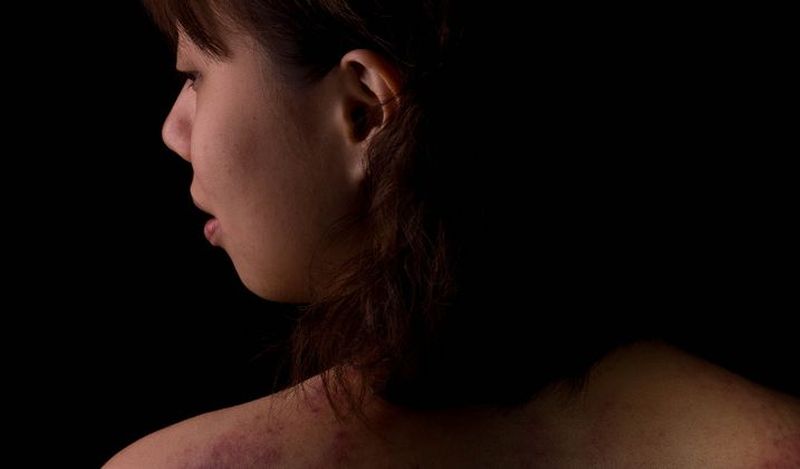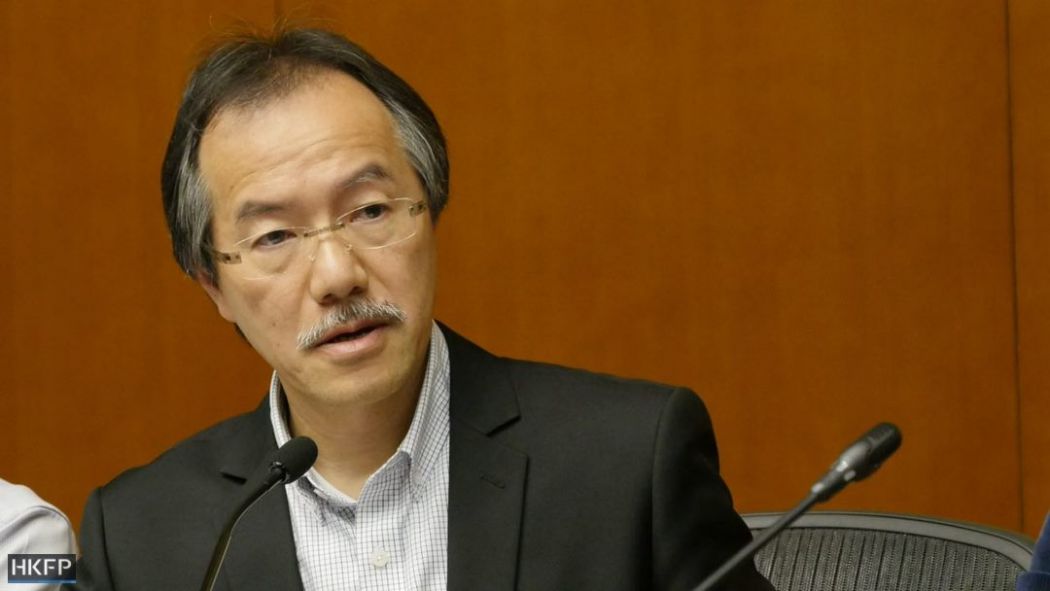By Catherine Chiang, Jody Yu and Megan Leung
After enduring an abusive marriage, Ms C, who does not want to reveal her identity, thought divorce would offer her and her three daughters an escape from a violent husband and father. So when the judge told her that she would have joint custody, or co-parent, the children with her ex-husband, she was filled with dread.
Co-parenting is based on the idea that parental responsibilities do not end when a marriage does and is becoming a global trend in family law. Should a new “children’s bill”, currently under consultation, be adopted here, it could become the norm in Hong Kong too. But some women and children’s advocates say this could put victims in danger in cases where there is domestic violence.

The bill is an attempt to overhaul a system based on the concept of parental custody of children in the event of a divorce, a system that often neglects or overlooks the wishes and rights of children.
The term “custody” refers to the responsibility and right of guardianship for a child. In the case of divorce, the custodial parent has the daily-caring and decision-making rights for a child, while the other parent might only retain a certain degree of involvement and access to the child. Existing custody orders in Hong Kong include a “sole custody order”, “joint custody order” and “split order”.
To make the system more child-focused, the Law Reform Commission (LRC) suggested a list of changes to Hong Kong family laws in a proposal – dubbed the Children’s Bill drafted in 2005. The proposed bill calls for a paradigm shift, replacing the concept of “custody” with “parental responsibility”.
This approach stresses the obligations and responsibilities parents should uphold, rather than their rights over their child. The proposed bill introduces the “joint parental responsibility model”, already in place in countries such as Australia and the UK, and stresses the right of the child to maintain a continuing relationship with both parents, who it encourages to co-parent. It also mentions a child’s right to have independent legal representation in court.
Barrister Michael Kung Kin-chung, who has written in support of the legislations, says: “We want to avoid drastic changes to the children, this is not good.” Kung believes the children in a divorce would be less affected if both parents were involved in their upbringing. He adds that co-parenting can potentially reduce the conflicts that arise when parents fight for custody, since both of them would take part in caring for their child.

Initial consultation on the bill was carried out from December 2011 to April 2012 and a recent consultation exercise was conducted from November 2015 to March 2016. Although the Children’s Bill is yet to be adopted, co-parenting is already a trend in Hong Kong’s family courts. Lawyers report the courts are increasingly granting joint custody to both parents rather than sole custody to one parent.
Although the arrangement is made with the child’s best interests in mind, it does not always work out that way. “I think my daughter doesn’t like the arrangement,” says Ms N, a divorced mother, who wishes to remain anonymous. Ms N was granted joint custody of her now eight-year-old daughter with her ex-husband.
She says that throughout her marriage, she experienced domestic violence and coercive control from her ex-husband. When she was in court, she presented medical records, police records, as well as photographic evidence of the abuse. For her, joint-parenting with a partner with whom she could not and still cannot communicate is a recipe for disaster and will extend the abuse.
See also: Hong Kong school kids’ happiness hits record low – survey
She says it is very difficult for her to reach any agreement with her ex-husband on a whole raft of issues related to their daughter, from the choice of schools, to her extra-curricular activities and where she should live.
At the moment, Ms N’s daughter spends three days at her apartment and the rest of the week at her father’s. The child told her she felt like she was being bounced around all the time. Ms N understands it could be exhausting for the child, but her hands are tied. She recalls an instance where her daughter was invited to perform in her school’s annual dance performance. She rehearsed diligently for months. However, the performance fell on a day she was supposed to spend at her father’s home. He prohibited her from performing because he felt it encroached on his parenting time.

“Co-parenting only works if two parents are willing to work,” Ms N says. “Abusive parents don’t do that. They want to control the partner, the children, and they use children as [a] weapon.”
Ms N is worried that if the Children’s Bill is adopted without sufficient safeguards to protect victims of family violence, more of them will have to go through the trauma of being forced to maintain contact and co-operate with their abuser.
In fact, the LRC’s consultation document does recognise the issue of domestic violence and says the courts will need to take special care in “applying the new joint parental responsibility model where family violence is alleged.” It goes on to say, “…while it is generally in the best interests of the child to have regular contact with both parents, in a small minority of cases, protecting the children and a spouse from the threat of violence is a more important consideration.”
In the document, the LRC points to what it calls serious shortcomings in Hong Kong’s current law on domestic violence and calls for a review and reform of the legislation to improve its effectiveness and scope. It also recommends the courts be given the power to suspend access and contact orders when there are incidences of family violence.
However, some legal experts and advocates are still concerned. They say there is a lack of sensitivity and understanding of family violence issues throughout the legal, law enforcement and even social welfare systems in Hong Kong.

Shirley Kong Sui-ting, a post-doctoral fellow at the University of Hong Kong, has done extensive research on domestic violence, especially intimate partner violence. This occurs when partners are not in a domestic setting, but remain in close contact with each other. Victims tend to suffer from multiple forms of violence, from physical to psychological to sexual.
Kong says Hong Kong has not caught up with the international definition of intimate partner violence and this increases the risks of co-parenting where there is a history of domestic violence. Likewise, the lines defining child abuse are blurred. For example, it is not considered child abuse for a child to witness intimate partner violence. Yet, seeing one parent being battered by the other can cause psychological issues and trauma. In the UK, intimate partner violence can constitute an offence that bars the abuser from contacting their child.
See also: Hong Kong needs to have a discussion about sexual consent
Kong thinks there should be an official assessment framework in place to assess the risk of co-parenting. Such a framework would be welcomed by Ms C, who has joint custody of her daughters aged two, four and six with her ex-husband.
Ms C says she was not the only one who suffered family violence in her marriage, and that her daughters were also targets of abuse. She went through six months of mediation before starting divorce proceedings. As a former kindergarten teacher with a background in early child education and psychology, she says she was fully aware of the drawbacks of raising a child in a single-parent environment. But she believed that growing up in a violent household would be much worse.
“My children have been going to counselling sessions and play therapy since being abused,” she says. Even now, Ms C says abusive acts still take place during their father’s visits, and police have had to intervene on several occasions.

“My daughter told the welfare officer ‘I don’t want to see my daddy. My daddy used to always hit me’,” says Ms C. However, the officer told Ms C that the words of a five-year-old were not trustworthy.
“If a five-year-old is not trustworthy, then why would the judge believe in a 30-year-old businessman?” says Ms C, raising her voice. The rationale for joint custody may be that it is in the best interests of the child and their rights to have contact with both parents, but Ms C questions if her child had the opportunity to be heard.
Meanwhile, Ms C says her ex-husband gives her the impression that he only shows up when he feels like it. “Every time he messages me a few hours prior [to visits] and says he doesn’t feel well.” One time, she says she saw him tagged in a friends’ social media post – out drinking after he skipped out of a visit with his kids. On top of this, Ms C says she is in dire financial straits because he fails to make his child support payments.
Ms C feels like she is the only one who has been fulfilling parental responsibilities since the joint custody order was made. “I have always agreed with the concept of co-parenting,” she says, but adds that when the other parent does not value their relationship with their children, she cannot see the point in granting them parental responsibility.
Legislator and social work lecturer Fernando Cheung Chiu-hung also agrees with the idea of the Children’s Bill and with co-parenting in theory. But he wonders if it can live up to its claims. Cheung says that in its current form, it is too idealistic and ignores the systematic limitations of our society.

“The bill keeps on emphasising ‘the best interest of the child’, but which mechanism in our service system is going to represent or actively seek for the opinion of the child?” says Cheung. While the proposed bill allows children to have their own legal representation, it is in fact the parents who would be responsible for their legal fees.
“Then the bill is just a slogan, ‘best interest of the child’, when in reality there is nothing you can ensure for the children.”
Cheung stresses the importance of having a well-supported social welfare service system in place before promoting joint parental responsibility and the bill. For instance, the establishment of a regulatory body to ensure parents pay alimony and fulfil other financial responsibilities. As it is, and without such support systems in place, Cheung says the bill would only do more harm than good if it were implemented.
Puja Kapai, an associate professor of law at the University of Hong Kong, agrees the bill should be implemented in tandem with reforms and improvements to the system. She stresses the need for front-line personnel to approach custody cases and cases involving family violence with more sensitivity and caution.
Kapai says that police too often overlook the fact that physical violence is not the only kind of violence. Consequently, their incident reports do not detail the significance of the violence inflicted on victims.

Kapai acknowledges the Children’s Bill is progressive in some ways, provided both parents are keen to put the child’s interests first, even if they cannot get along. However co-parenting can also put the victims of abuse in a vulnerable position.
She and other critics will be hoping the current proposals will be revised to take cases of family violence into account and to alternative options for judges in such cases. The public consultation exercise ended last March and the Labour and Welfare Bureau will consider public submissions before taking the bill through to the next stage of the legislative process.
Kapai for one is hoping for improvements. “I would be wary of saying that this is the best that we can do. I think we can do much better,” she says.
